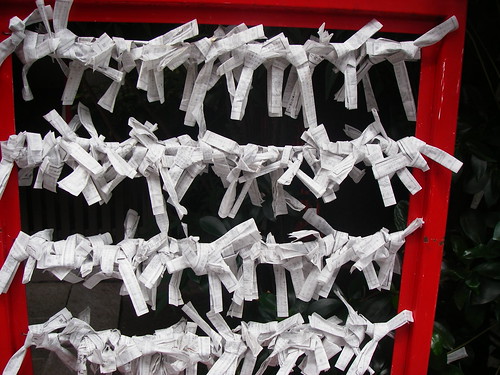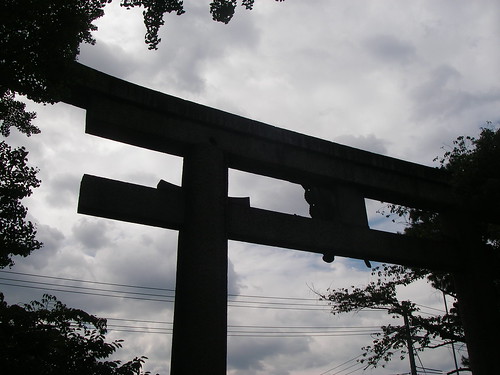Bath Talk

05/09/2007 (evening)
The people who were staying in the tatami rooms (with communal bath only) were mostly twenty years younger than me and look like athletes or models. I timed my ablutions so that I would be unlikely to encounter any of them while frantically showering and soaping myself, then tried to hide my bulk as best as possible behind the flannel-like towelettes that seem to take the place of bath towels here.
I’ve never changed as quickly as last night—except perhaps for tonight.
Last night had been a relatively relaxed affair. I figured that I could hear people a long time before they actually entered the bath, and if they were next door, it would be too late anyway. They’d see me butt-naked one way or the other.
So, after my frantic ablutions, I dipped my toe into the bath.
Ouch!
It would probably take a good couple of minutes to fully immerse myself in the steaming tub and a few minutes more before my circulation would give out.
Since I had open blisters on my feet, getting into the tub wasn’t an option anyway. I went back to the chilly changing room, threw my dress over my still-wet skin and sauntered back outside just as the next gaggle of teenage models arrived, looking pretty in their yukatas.
That was yesterday. When I came downstairs today, I saw that the signs had been switched around. What was ‘Ladies’ yesterday, was ‘Men’ today.
This could be someone’s idea of a practical joke.
I managed to break my personal speed-washing record by a full fifty per cent, and all the time I thought I could hear people giggling next door.
Back outside, I had to calm myself with a can of Asahi. This wouldn’t be such a big deal in the UK, but this was Japan, and I was mortified well beyond my usual level of embarrassment.
I only calmed down when a group of male students entered the bath through the former Ladies’ entrance. Not a joke then. That would probably have been unthinkable.
In the absence of a bar, the bath and the basement room in front of it were the hotel’s social hub: there were vending machines, a ping-pong table and—more importantly—chairs with legs, so I tended to eat there before retreating to my room. I enjoyed the company of others vicariously, waving to them as they entered and left the bath. But one of the students split from the group when they came back outside and sat down next to me.
“Where are you from?”
“England.”
“Why do your people attack the Iraqi people?”
Damn.
He rose up. “Wait, I’ll be right back.”
I was half-way through my bento, so I nodded and he shot off to the lift. About two minutes later, he came back and placed a bottle of whisky and two cans of coke on the floor. It seems that Big Tim hadn’t been the only one to come prepared.
“You know,” I whined, “they’re not my people. They’re the government. I’ve actually taken part in peace—”
He cut me off, the drink already going to his head. From his passionate diatribe I got the message that Japan’s committment to peace—enshrined in its constitution—is a dynamic force for the good. That the money we spend on war-mongering pays for culture and science and a vibrant economy in Japan, the result of political will combined with a world-class education system.
It wasn’t the first time I’ve come across that sentiment, and I generally agree, but this must have been the first time I was about to leap to the defense of US foreign policy (which takes care of defense in that region, much lauded by the Taiwanese), that’s how irritating he was. Thankfully he cut in again, before I could open my mouth.
“It’s changing now,” he said. “The government wants to change the constitution.”
That was always on the cards, but I wonder what it will do to the national psyche.
His anger, I realised, wasn’t directed at me or at the West. He was channeling the frustrations he felt at his own country’s policy makers.
I shook his hand and muttered something encouraging, along the lines of what a great example Japan is setting the rest of the world, then hastily retreated.
